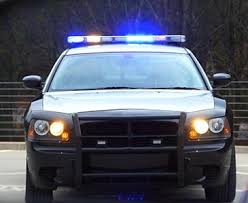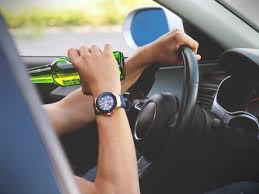DUI and Impaired Driving Charges – Facts That You Should Know
Some people think that impaired driving charges only apply to those who were involved in an accident or those who were visibly intoxicated when they were pulled over. The truth is that driving under the influence and impaired driving applies to more situations which can be better explained by a DUI lawyer. If you have been arrested for impaired driving or arrested for a DUI and you are not sure why, it is best to remain calm and be careful about what you say because small mistakes can easily lead to a conviction. Below are some of the most important things to remember if you’re facing DUI and impaired driving charges.
The Vehicle Does Not Have to Be Running or Moving
You can be arrested for a DUI even if you’re only waiting in your parked vehicle for someone to drive you home. The engine does not have to be running and the vehicle does not have to be moving for an arrest to be valid. If you’re intoxicated, it is best to stay outside of your vehicle while waiting for another driver or someone to pick you up.
It is Still A DUI Even Without A Car
Being in any type of vehicle can lead to a DUI arrest. If you’re inside any type of vehicle, it is still possible to charge you with impaired driving because the idea behind the arrest is that you are still a possible danger to yourself and others when you’re inside a vehicle while intoxicated.
Alcohol is Not the Sole Substance to Watch Out For
Having too much to drink is just one reason for a DUI arrest. Being intoxicated in any substance that can affect the senses and perception can result in a DUI charge. This means that if you’ve used medications that can cause drowsiness such as the common side effect for anti-allergy medications, there is a potential for this to lead to a DUI charge in Canada.
Rejecting A Breathalyzer Test Can Lead to An Impaired Driving Charge
If you have been approached by an officer to take a breathalyzer test, the smartest thing to do is to comply because this will work in your favour no matter whether you’re intoxicated or not. If your blood alcohol level has not reached the legal limit, you may only receive a warning. If your blood alcohol level is above the legal limit, your actions with how you complied and how you behaved during the arrest can help you avoid a conviction. On the other hand, if you refused a breathalyzer test, the officer will have to arrest you and the resulting consequences can be very challenging to defend even for a seasoned impaired driving lawyer.

What To Do When You Are Pulled Over And/Or Arrested
Your behavior at the moment of contact with police can greatly help or hurt your case. There is a lot of advice out there for how to act during an encounter with a police officer, but here are some additional tips:
- Pull over safely and in a controlled manner. You do not want a patrol car following you with lights on too long, but pulling over somewhere safe as opposed to the middle of a busy highway always makes sense.
- Place both hands on top of the steering wheel so that the officer can see them.
- Be polite, and cooperative to the extent that it is reasonable, but remember that you don’t have to answer questions or provide information beyond your name and the information contained on your license, registration and insurance card.
- Avoid answering self-incriminating questions without coming across as defensive. Never comment on questions like “Why did you run that stop sign?” Instead, say something like “I’m sorry, officer, but I’ve been advised not to answer any questions.”
- Never lie to an officer. It will hurt your case later.
- You have the right to refuse a field sobriety test and may want to take advantage of that right depending on the circumstances. You also have a right to refuse a breathalyzer at the scene, although you can be given a ticket for a non-moving traffic infraction. However, under Kansas implied consent laws refusal of a breath test at the police station or jail can result in harsher suspension and restriction of your driver’s license.
- Avoid sudden movements and declare any weapons in the vehicle.

DUI vs DWI – What Is the Difference Between DUI and DWI?
Depending on the state that you reside in, driving under the influence (DUI) and driving while intoxicated (DWI) can have vastly different meanings. Both terms indicate that an operator of a motor vehicle has been deemed too impaired to continue driving, but how that conclusion was reached is what can differ from case to case. In most instances, a state will use one acronym to specifically describe drunken driving, and the other to describe being under the impairment of drugs.
A common pattern in states distinguishing the difference between DUI vs DWI lies in the blood alcohol content (BAC) of the driver at the time of questioning. DWI often refers to someone who tested above the legal limit of .08%, while DUI indicates that they were under the influence enough to be impaired without reaching an illegal BAC. Even if your breathalyzer proves that you are under .08%, a law enforcement officer may still determine that your judgement is too impaired to continue operating a motor vehicle.
Other states may differentiate DUI vs DWI by establishing one acronym to indicate the influence of drugs, while the other is reserved to indicate drunken driving. Many states will use DWI to specifically refer to being under the influence of alcohol, while a DUI points to someone being impaired by drugs. It is critical to note that impairment brought on by prescription drugs is also qualified as driving under the influence, and can be tried as such. If the law enforcement officer at the scene cannot determine the level of impairment, they often call a drug recognition expert (DRE) onto the scene in order to follow their 12-step protocol for identifying impairment levels.
The National Highway Traffic Safety Administration (NHTSA) reported that over 1.5 million individuals are arrested annually for DUI and DWI offenses. These staggering statistics show how important it is to be well-versed in your state’s laws surrounding impaired driving. Becoming knowledgeable about the DUI and DWI definitions in your state will allow you to avoid potential prosecution while providing much safer roadways.

What to Do After Receiving a DUI Charge
If you’ve ever been pulled over and charged with a DUI, then you understand how frightening it can be, especially if it’s your first time. Because of this, it is important to know what to do while the situation is happening. You can’t take back your mistake, but you can avoid making more during the process. Therefore, the following list includes some detailed information on what to do after you’ve been dealt with a DUI charge.
The Initial Stop
If you are stopped by a police officer because they suspect you of driving while intoxicated, then Las Vegas injury lawyers would highly recommend doing whatever the officer says even if you’re very intoxicated. The last thing you want is to argue with the officer as they can add additional charges.
Being Handed a DUI Charge
After being charged, you will be taken to the police station. If this is your first time being taken to jail, it can be a long process. Once that is done, an investigator will ask you a series of questions regarding your actions. Note that if you feel like you are being blamed for additional crimes and thus feel the interview is unfair, then you should contact an attorney as soon as possible.
Your Court Case
More often than not, the evidence against you will be overwhelming, and therefore your court case will usually only include your sentencing. Once again, be respectful and don’t attempt to lie to receive a lesser sentence. Most DUI punishments include community service or a court referral program.
The Consequences of a DUI Charge
Even after you’ve completed your punishment, you are going to have the DUI charge on your record for several years or forever in some rare cases. This can be a little awkward with future employers, but you should never attempt to hide it. Instead, take the time to explain yourself.
What are DUI checkpoints or Sobriety checkpoints?
If you’ve been charged with DUI after being stopped at a checkpoint, your first question was probably whether DUI checkpoints are legal. The answer is that sobriety checkpoints are in legal, but you still have rights. If your rights were violated, you may be able to have your charges dropped.
Many people have argued that DUI checkpoints are an unconstitutional violation of the Fourth Amendment right to be free from unreasonable searches and seizures. This is because when police stop drivers at checkpoints, they don’t need any cause at all to make the stop. The courts have ruled that driving on a public road isn’t an absolute right and that the police can set up checkpoints as long as they meet strict conditions.
At the checkpoint itself, police can’t single out drivers or use any sort of discretion in deciding who to stop. They must stop either every car or follow a predetermined pattern such as every third car. Once they do stop a car, they can only ask for basic information. They must have probable cause to conduct further sobriety tests or to search the car.
Drivers must also be able to avoid checkpoints. This is because drivers who go through a checkpoint are considered to have consented to it. The police may need to give advanced notice in the media or post warning signs up the road. Contrary to popular belief, a driver avoiding a checkpoint does not give the police cause to stop that driver. The police would need another traffic violation such as an illegal u-turn or failing to signal.
If you are arrested for driving while under the influence at a checkpoint, all of your normal rights and defenses still apply. For example, you can challenge whether a sobriety test was done properly or whether the police searching your car and finding an open container of alcohol was a legal search.